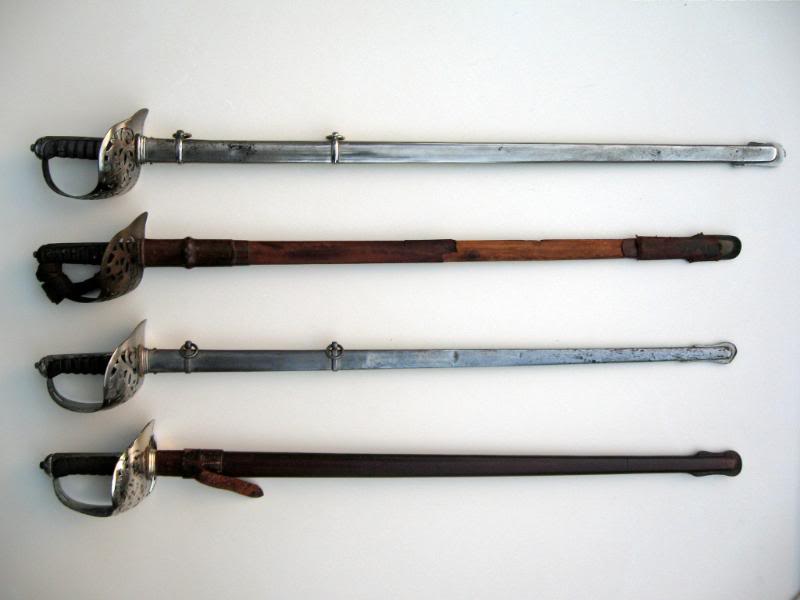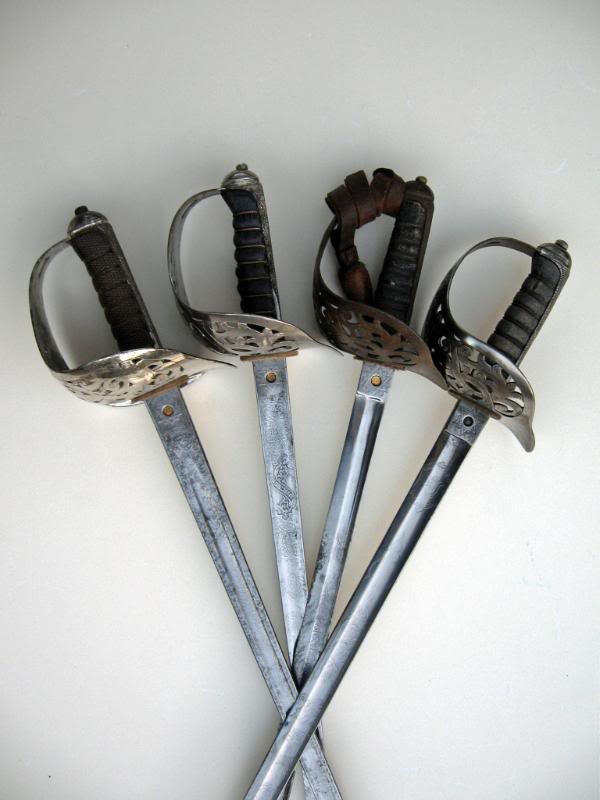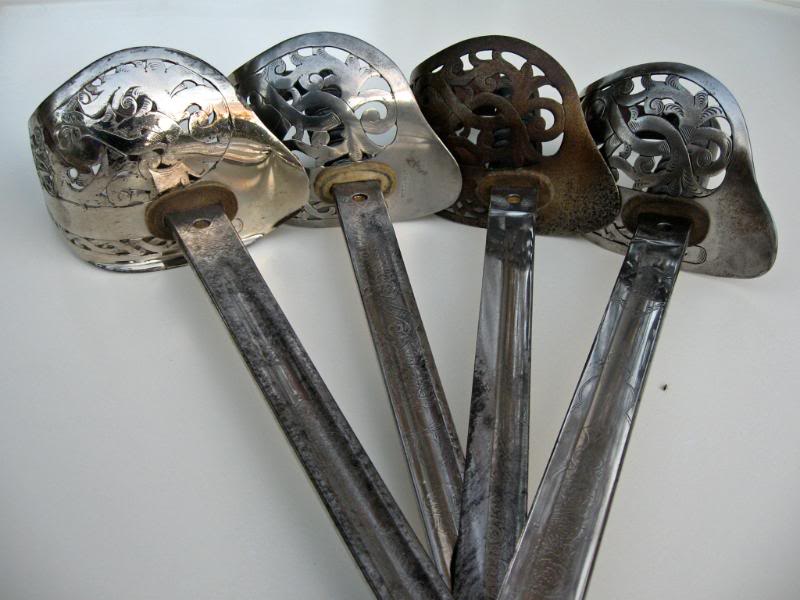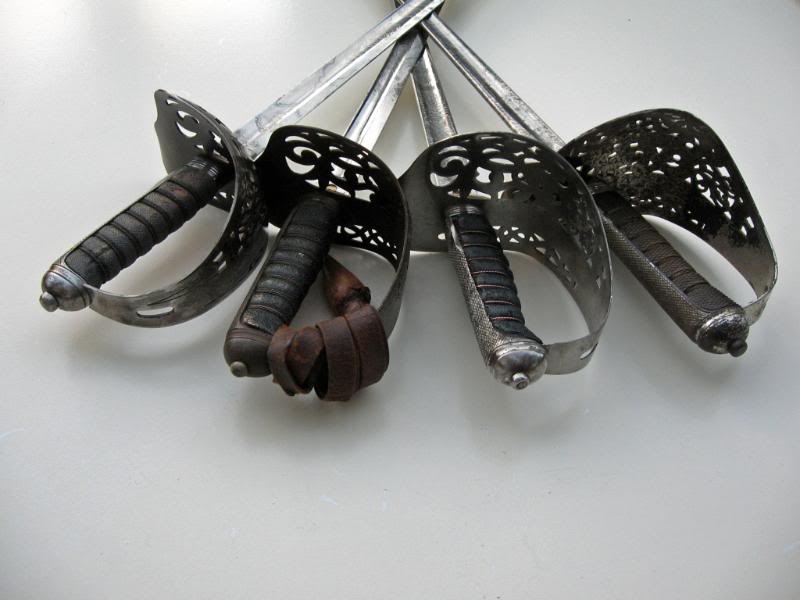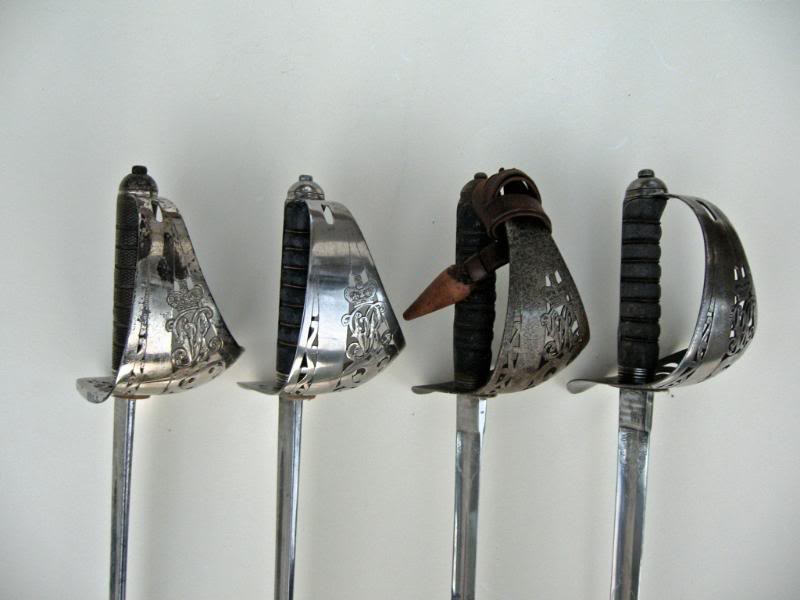

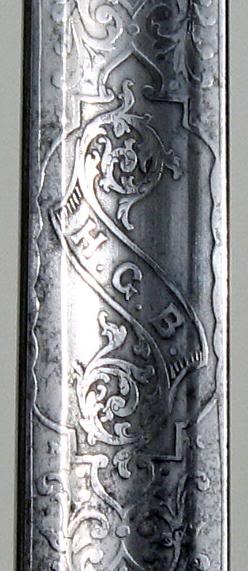
In addition, it is a Wilkinson and therefore numbered and researchable. The owner was even kind enough to have his initials put on the blade! And what a fortuitous thing he did, too, since the proof book entry is blank for this blade. Undaunted, I combed through the index of the 1893 Hart's List (accurate through December, 1892) and found all matches for the initials "H.G.B.". There were several matches for these initials, many of which could be excluded from the shortlist of candidates due to their branches of service. In the end two possibilities emerged; Henry Gerard Burton and Henry G. Browne, the only infantry officers in my list, and both serving in the Indian Army. I researched each man to see if I could discover if one was more likely than the other. I did not find anything terribly conclusive. However, Burton seemed like a stronger candidate as he was the only one of the two men to see active service, and in my mind such an officer would be more likely to jump on the bandwagon when the new blade was introduced in 1892. Additionally, the sword was re-hilted in 1896, the year in which Browne died. I was probably a bit biased because I would have preferred that Burton be the original owner since he saw a good amount of action, but I feel that my hunch is given more strength since the blade was sharpened for service. So for now I am satisfied that this sword was purchased by the eager Lt. Burton in 1892, several months before being promoted captain and while seconded for service with the Burma Military Police.
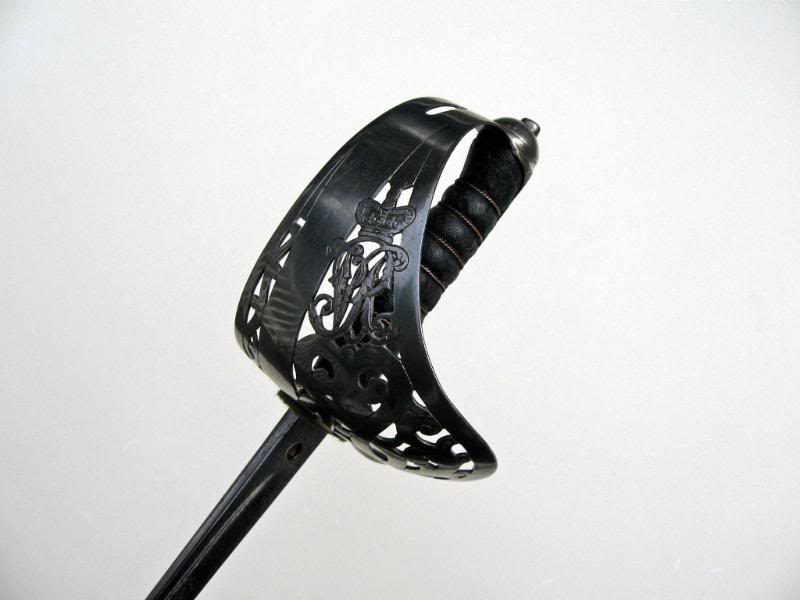
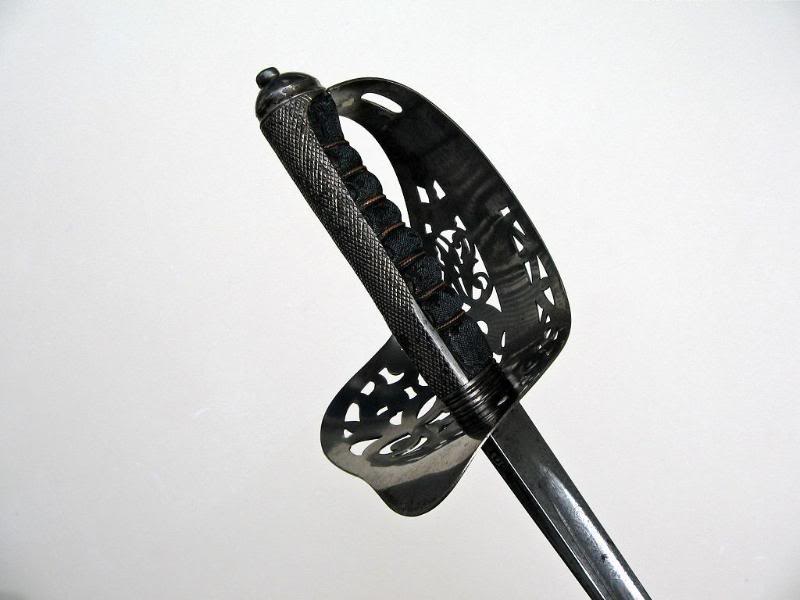
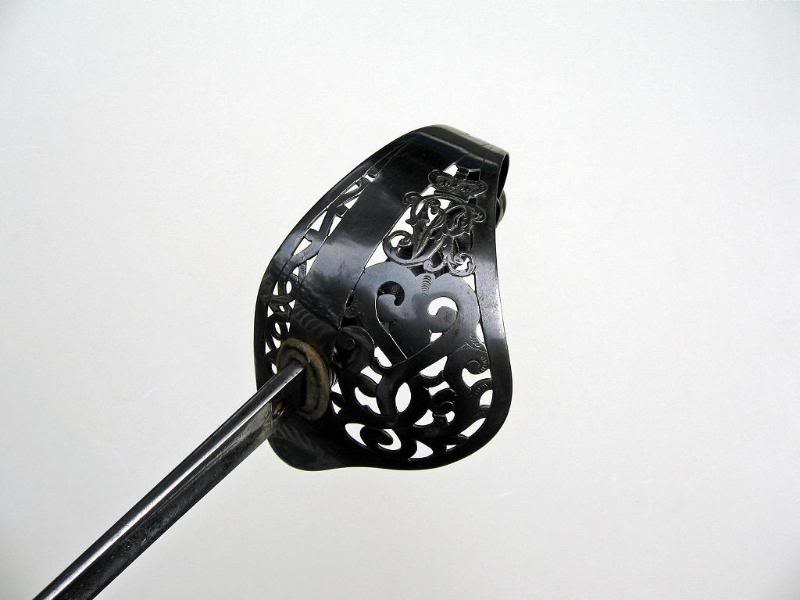
Henry Gerard Burton was born April 22nd, 1863 in the "East Indies", the third son (of nine!) of Colonel Edmond Francis Burton, Madras Staff Corps, and Georgiana Burton. Burton attended King William's College from 1874-80, and thereafter the Royal Military College. Upon completing his education in 1881 he was commissioned as 2nd lieutenant in the Bedfordshire Regiment (22 October). Soon thereafter, on 24 March 1882, Burton transferred as a lieutenant to Prince Albert's (Somerset Light Infantry). He joined the 2nd Battalion in India, where he would remain for the balance of his career. 21 May 1885 he was attached to the 16th Madras Infantry as a wing officer. He had a very brief period of service with the 33rd Madras Infantry before being attached (i16 September 1886) as an officiating wing officer with the 4th Sikh Infantry, Punjab Frontier Force. In 1887 Burton left Prince Albert's (Somerset Light Infantry) and transferred to the Staff Corps in India, serving as Officiating Quarter Master with the 4th Sikh Infantry. Thus began his career with the Indian Army.
Burton continued to serve with the 4th Sikh Infantry as a Wing Officer and Quarter Master until 1890. It was in that year that he was attached to the Burma Military Police as Assistant Commandant. He continued to serve with the BMP through the Burmese conflicts of 1891-93 (Medal with Clasp). During his service in Burma he was promoted captain (22 October 1892). he served with the BMP until 1894 when he went on furlough. Upon returning to the 4th Sikh Infantry he was whisked away to help relieve the besieged Chitral (Medal with Clasp). In 1896 he was attached to the 1st Sikh Infantry. On 30 August 1897, Burton was 2nd in command of the 4th Sikhs and was granted the local rank of major. 10 July 1901 he was promoted to full major, 3 February 1903 he was made a temporary lieutenant-colonel, and 1 June 1904 he was promoted to full lieutenant-colonel (53rd Sikhs [Frontier Force]). Burton died of unknown causes in the Parish of St. Thomas, Exeter.
Burton's personal life--rather his family--is quite interesting. Burton was married at Cheltenham, Gloustershire in 1900. I am not sure if he and his wife (name unknown) has children. However, I do know that Burton is one of 9 sons of General Edmond Francis Burton of the Madras Staff Corps, all of whom served in the military and mostly in the Indian Army! General E.F. Burton was a keen hunter and avid writer, and authored several books including Reminiscences of Sport in India, An Indian Olio, and Trouting in Norway. By my count I have nine more swords to find in order to have the complete Burton collection! ;)
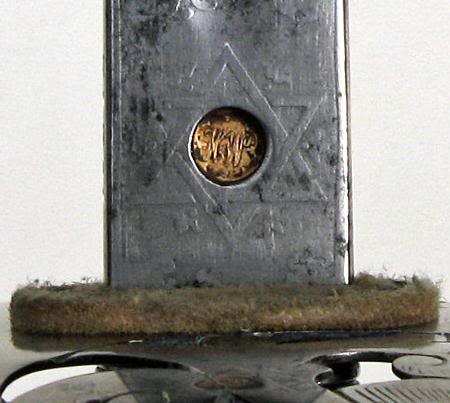
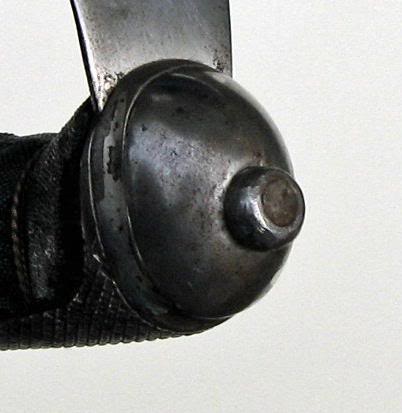
Sources:
Various editions of Hart's Annual Army List
History of the 1st Sikh Infantry
King William's College Register
Various issues of the London Gazette
Ancestry.com
My thanks to John Hart for his research assistance!
